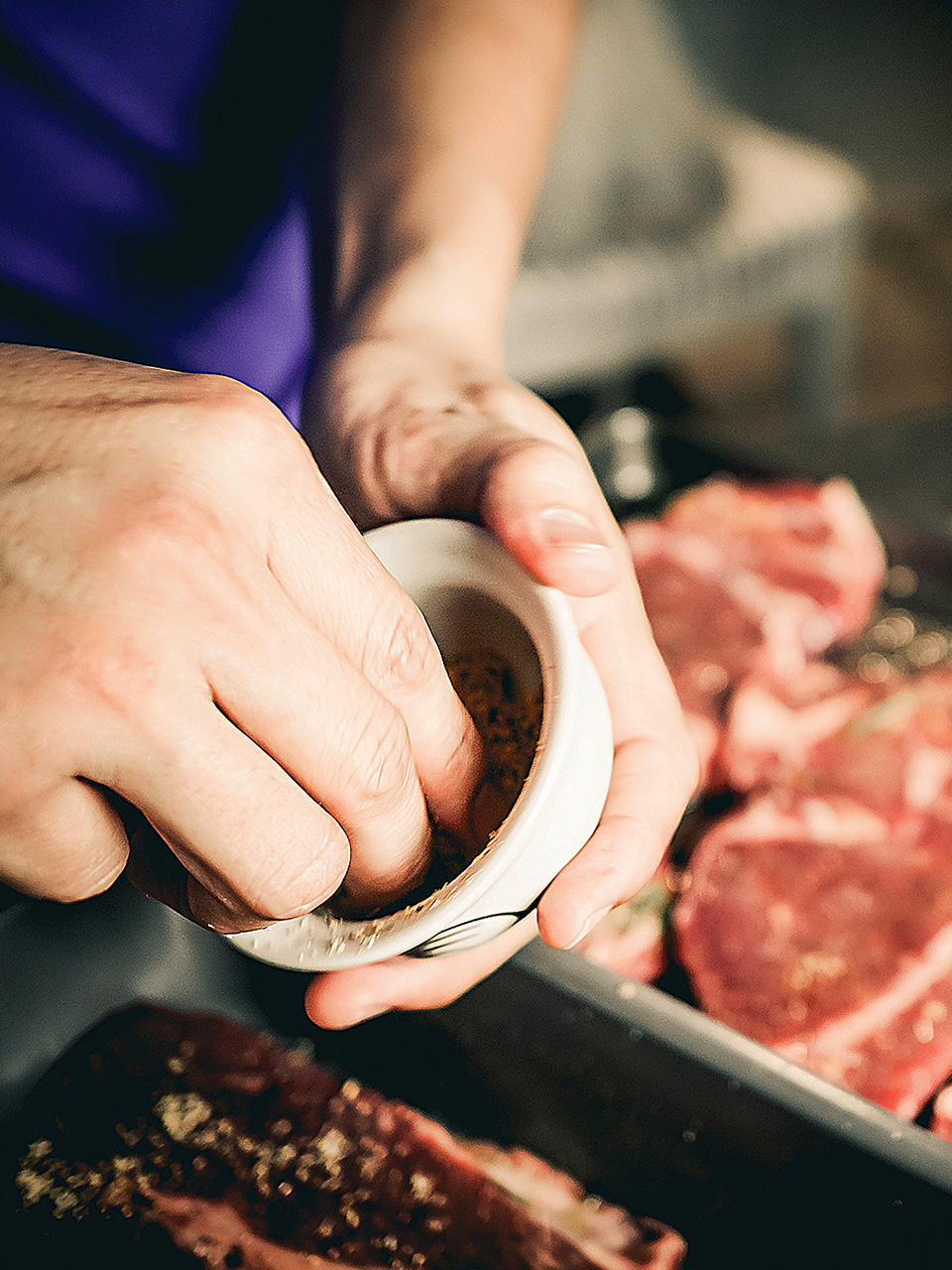
Tap to Read ➤
4 Steps To Becoming a Chef
So, you’ve found your passion for food and you’re looking to take the necessary steps to get where you want to be.
Abbie Faulkner


So, you’ve found your passion for food and you’re looking to take the necessary steps to get where you want to be. We know how daunting it can be, especially at a young age, to decide on what you want to do as a career path.
But for anyone who has thought about a future in food, we hope we can provide some inspiration and make the process a little easier.
But for anyone who has thought about a future in food, we hope we can provide some inspiration and make the process a little easier.

The road to becoming a chef takes time, and plenty of hard work. If we could all appear on a popular cooking show with star famous chefs, it’d be a dream – but a farfetched one at that.
Aspiring chefs usually start at a ground level job and work their way up to each ranks of the profession.
Aspiring chefs usually start at a ground level job and work their way up to each ranks of the profession.

1. Find a Job in a Kitchen
If this is your first official job in the industry, it’s an important one for you to know your surroundings and know what actually goes on in a kitchen.
This isn’t a job where you’ll be free to start cooking meals for customers, it’s one where you might have to carry out the most mundane things. Such as washing dishes, taking out bins and cleaning.
This isn’t a job where you’ll be free to start cooking meals for customers, it’s one where you might have to carry out the most mundane things. Such as washing dishes, taking out bins and cleaning.

Pay close attention to the professionals in the kitchen, observe what they do as this is what matters. The most common first jobs are:
- Waiter / waitress
- Kitchen assistant
- Washer / cleaner

2. School/College Qualifications
If you’re lucky enough to know that you want to become a chef before you graduate and leave school or college, you can use your options to study courses that are relevant to food.
This could be food technology, or even business! Finishing school and college isn’t required to make it as a chef, but it does certainly help.
This could be food technology, or even business! Finishing school and college isn’t required to make it as a chef, but it does certainly help.

Experience, however, does show motivation and proactiveness. If you take related courses on your own initiative, such as food hygiene courses to practice the safety of food preparation, it has an advantage on future resumes and cv’s for jobs.

3. Culinary Schools & Academies
There are a vast array of options when it comes to culinary schools, which can take from 1 year up to 4 years. It’s where you’ll have the chance to practice what you already know, and to perfect skills you didn’t even know you had.
You’ll be surrounded by professionals and teachers that can help you earn positions in restaurants with higher responsibilities.
You’ll be surrounded by professionals and teachers that can help you earn positions in restaurants with higher responsibilities.

The curriculum covered is different depending on which cooking school or academy you choose.
The most common educational skills included in courses feature: baking, food science, culinary skills, food safety and food procurement.
The most common educational skills included in courses feature: baking, food science, culinary skills, food safety and food procurement.

4. Certification
This is rewarded after you have completed culinary school and has a big advantage when it comes to applying for chef positions which are quite competitive.
Certifications also help market a chef’s cooking ability, whilst opening the door for many opportunities for advancement.
Certifications also help market a chef’s cooking ability, whilst opening the door for many opportunities for advancement.

Desired Skills
Here are a few of the desired skills for becoming a chef.
- Attention to detail
- Creativity
- Cleanliness
- Fast paced decision making
- Organisation
- Team player

The journey to becoming a chef is one that is worthwhile, and with the right training and expertise you will have the opportunity to find out which sector you would like to specialise in. For example, do you want to focus on being a sous chef? a saucier? or even a personal chef?
Get cooking up something good!
Get cooking up something good!